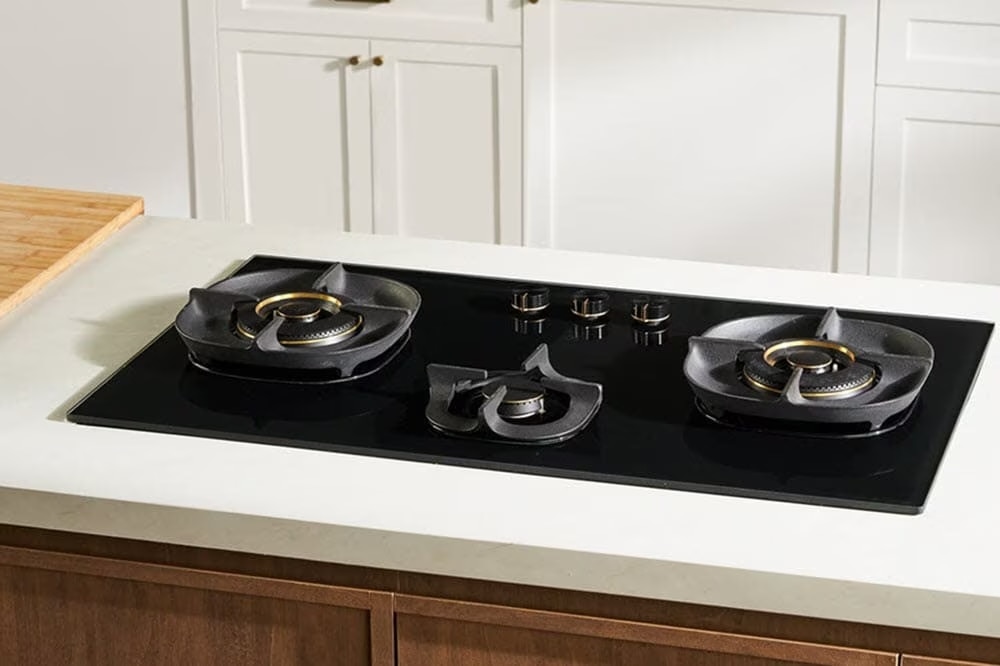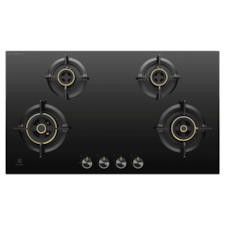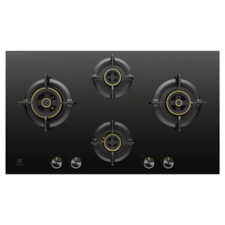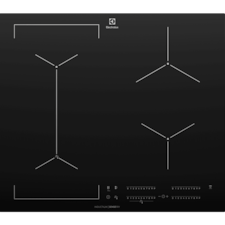Why do hob sizes and dimensions matter?
Before we dive into the specifics of hob sizes and dimensions, let's address why they matter. You might be wondering why it's essential to know these details before purchasing a hob. Well, the answer lies in efficiency and practicality.
Efficiency: The right-sized hob ensures that your energy is used optimally. You won't waste power on a larger hob if you don't need it or find yourself struggling with insufficient space on a smaller one.
Practicality: Your kitchen layout and cooking needs play a significant role in choosing the right hob. You want a hob that fits seamlessly into your kitchen, making cooking a breeze.
Now, let's explore hob sizes and dimensions to help you make an informed decision.
What is the standard hob size?
Hob sizes vary based on the type and the number of cooking zones they offer. Here are the most popular hob sizes and dimensions:
- Small size: Width: 30-36cm, 1 or 2 cooking zones
- Standard size: Width: 60 cm, 3 or 4 cooking zones
- Large size: Width: 70 – 90cm, 5 or 6 cooking zones
What about gas hob sizes?
Built-in gas hob sizes
When it comes to built-in gas hobs, dimensions matter. Here's a breakdown of the sizes:
|
Number of burners |
Dimension (Width, depth, height) |
|
2-3 burners |
78-80 cm x 46-50cm x 6,5-15cm |
|
4 burners |
60cm x 52cm x 6,5-15 cm |
|
5 burners |
90cm x 50cm x 6,5-15 cm |
Note: The sizes and dimensions mentioned are approximate and may vary based on specific models. Always refer to the product specifications for precise details.
Freestanding gas hob sizes
For freestanding gas hobs, it often comes with 2 burners 70cm x 40cm x 14cm
Exploring built-in induction hob sizes
For built-in induction hobs, consider these dimensions:
|
Number of cooking zones |
Dimension (Width, depth, height) |
|
2 cooking zones |
70-73 cm x 68 cm x 4 cm |
|
3-4 cooking zones |
60-80 cm x 52 cm x 5 cm |
Note: The sizes and dimensions mentioned are approximate and may vary based on specific models. Always refer to the product specifications for precise details.
Read more:
- 5 benefits of buying an induction cooktop for your kitchen
- Gas hob vs induction hob: Which is right for me
How much space does a stove need?
When installing your hob, whether gas or induction, proper spacing is essential. Adequate clearance ensures safe operation and ventilation.
Side clearance: Allocate a minimum of 30 centimeters of space on both the left and right sides of your hob. This provides ample room for handling hot cookware safely and offers a comfortable space for food preparation.
Rear clearance: Maintain a distance of at least 10 centimeters between the back of your hob and any combustible materials, such as walls or cabinets. This not only ensures proper ventilation but also reduces the risk of overheating.
Overhead clearance: If you have overhead cabinets or a range hood, ensure there is a minimum of 75 centimeters of space between the top of your hob and these structures. This safeguard prevents heat from damaging cabinets and facilitates effective ventilation.
Island installation: In the case of island installation, clearance requirements may differ. It is essential to refer to the precise installation instructions provided with your hob to ensure safety and compliance with local regulations.
To get the exact measurements, consult your hob's user manual. This step is crucial to prevent overheating and maintain the longevity of your appliance.
Choose the right hob size for your family
When selecting the perfect hob sizes, consider your cooking habits, the available kitchen space, and your preferred cooking style. For a more in-depth guide on choosing the right hob, check out our comprehensive stoves & hobs buying guide.
Cook with confidence using Electrolux stoves & hobs

Elevate your culinary experience with Electrolux stoves and hobs. Our high-quality glass cooking surfaces not only look sleek but are also a breeze to clean, minimizing scratches and keeping your kitchen pristine.
With sensitive touch controls and advanced induction technology, Electrolux hobs are designed for safety, efficiency, and speed. No more worrying about burnt-on spills – induction technology ensures that only the area beneath the pan heats up. Plus, it's faster and more energy-efficient, so you can create delicious dishes in less time and with less energy consumption.
Explore our best-selling gas hobs:
- Brass burners to sear, simmer and pan fry.
- Blue flame burns efficiently to lower energy cost.
- Mini triple-ring burner for intense, even heat.
- Brass burners to sear, simmer and pan fry.
- Blue flame burns efficiently to lower energy cost.
- Mini triple-ring burner for intense, even heat.
- StepFlame settings deliver precise heat control.
- FlameShield improves efficiency and results.
- High power burner is ideal for stir-frying.
Explore our top-rating induction hobs:
- Select the bridge function to combine two zones.
- PowerBoost provides quick, intense heat.
- Induction is safe, fast, and energy efficient.
- SenseFry adjusts heat for even frying results.
- Select the bridge function to combine two zones.
- PowerBoost provides quick, intense heat.
Read more: How to clean your gas stoves
FAQs about hob sizes and dimensions
-
1. What is the most popular size of a hob?
The most popular hob size is the standard size, which measures approximately 60cm in width and typically offers 3 or 4 cooking zones.
-
2. What is the ideal distance between a hob and a range cooker?
Maintain a distance of approximately 60cm between your hob and range cooker for safe and efficient cooking.
-
3. How far should a hob be from a wall?
For safety and ventilation, place your hob at least 100cm away from combustible materials like walls. Always consult your hob's user manual for manufacturer-specific recommendations.
-
4. How much counter space do I need next to a cooktop?
Allocate at least 30cm of counter space on each side of your cooktop to ensure safe and convenient cooking.






